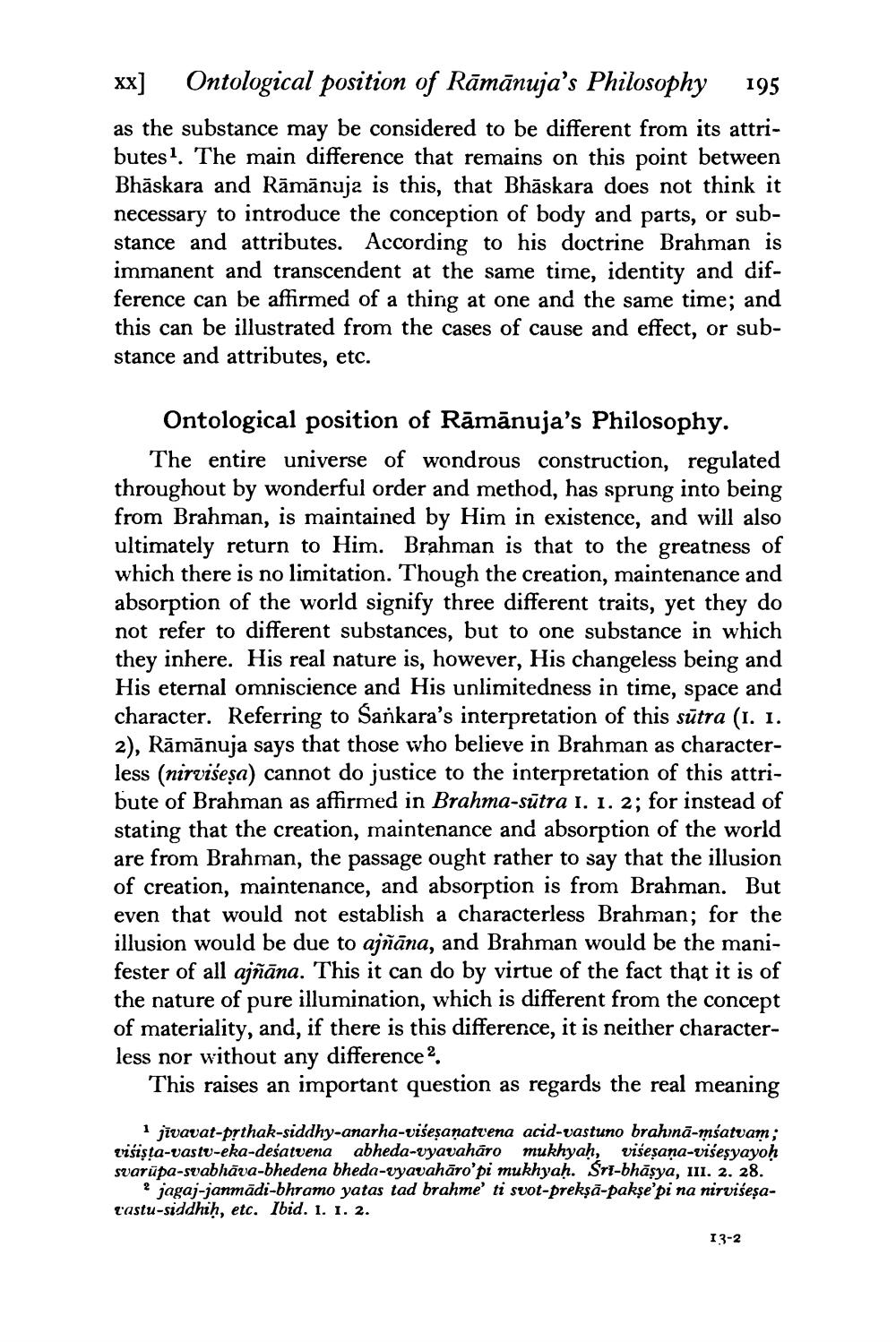________________
xx]
Ontological position of Rāmānuja's Philosophy
195
as the substance may be considered to be different from its attributes1. The main difference that remains on this point between Bhaskara and Rāmānuja is this, that Bhaskara does not think it necessary to introduce the conception of body and parts, or substance and attributes. According to his doctrine Brahman is immanent and transcendent at the same time, identity and difference can be affirmed of a thing at one and the same time; and this can be illustrated from the cases of cause and effect, or substance and attributes, etc.
Ontological position of Rāmānuja's Philosophy.
The entire universe of wondrous construction, regulated throughout by wonderful order and method, has sprung into being from Brahman, is maintained by Him in existence, and will also ultimately return to Him. Brahman is that to the greatness of which there is no limitation. Though the creation, maintenance and absorption of the world signify three different traits, yet they do not refer to different substances, but to one substance in which they inhere. His real nature is, however, His changeless being and His eternal omniscience and His unlimitedness in time, space and character. Referring to Sankara's interpretation of this sūtra (1. 1. 2), Rāmānuja says that those who believe in Brahman as characterless (nirviseșa) cannot do justice to the interpretation of this attribute of Brahman as affirmed in Brahma-sutra 1. 1. 2; for instead of stating that the creation, maintenance and absorption of the world are from Brahman, the passage ought rather to say that the illusion of creation, maintenance, and absorption is from Brahman. But even that would not establish a characterless Brahman; for the illusion would be due to ajñāna, and Brahman would be the manifester of all ajñāna. This it can do by virtue of the fact that it is of the nature of pure illumination, which is different from the concept of materiality, and, if there is this difference, it is neither characterless nor without any difference 2.
This raises an important question as regards the real meaning
1jivavat-pṛthak-siddhy-anarha-višeṣaṇatvena acid-vastuno brahmā-mśatvam; visista-vastv-eka-deśatvena abheda-vyavahāro mukhyaḥ, viseṣaṇa-viseşyayoḥ svarupa-svabhava-bhedena bheda-vyavahāro'pi mukhyah. Sri-bhāṣya, III. 2. 28.
2 jagaj-janmādi-bhramo yatas tad brahme' ti svot-prekṣā-pakṣe'pi na nirviseșarastu-siddhiḥ, etc. Ibid. 1. 1. 2.
13-2




